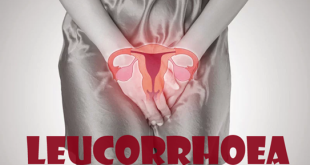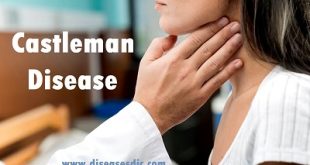Definition of Colon Polyps
Colon polyps or colorectal polyps are small, fleshy growths that form in the inner lining of the large intestine or the rectal region. These are usually benign although in some instances they can progress into cancer. In fact, malignant transformation in polyps is one of the most common causes of colorectal cancer. Often, those who have colon polyps are not aware of it because these tend to remain asymptomatic. In fact, colon polyps are often discovered incidentally.
Colon Polyps
Usually, these growths are about 1cm across but occasionally they can be larger. Larger ones are more likely to give rise to colorectal cancer. Polyps may appear individually or in clusters. They could be located in the rectum or the various parts of the colon such as the caecum, ascending colon, transverse colon, descending colon or the sigmoid colon.
Epidemiology of Colon Polyps
Colorectal polyps are more common in non-Caucasian men in western countries.
Incidence
Incidence increases with age.
Prevalence
- 15–20% of all adults
- 30% of U.S. population >50 years
- 6% of children
- 12% of children with a lower GI bleed
Types of Colon Polyps
There are many types of Colon Polyps but of most important are the three types mentioned below:
Adenomatous Colon Polyps: About 40% of Colon Polyps are found to be of this type. Very rarely do these types of polyps become cancerous even though the majority of malignant polyps are of this type.
Serrated Colon Polyps: These polyps may become cancerous depending on its size and location in the colon.
Inflammatory Colon Polyps: These types of polyps are found usually after an episode of ulcerative colitis or Crohn’s disease. Although such polyps themselves are harmless, having diseases like Ulcerative Colitis or Crohn’s disease can predispose an individual to colon cancer.
Risk factors
The risk factors that contribute to Colon Polyps formation include the following:
- A history of ovarian, uterine, or breast cancer
- Type 2 diabetes
- Inflammatory bowel disease including Crohn’s disease or ulcerative colitis
There is also a higher risk associated with the following conditions:
- Being overweight
- Regularly having a high-fat diet, which includes the consumption of vast amounts of red or processed meats
- Living a sedentary or inactive lifestyle
- Smoking
- Alcohol consumption
It is important to note that having a risk factor does not mean that one will get the condition. A risk factor increases one’s chances of getting a condition compared to an individual without the risk factors. Some risk factors are more important than others.
Causes
People are either born with colon polyps or develop them during their lifetimes.
Doctors do not yet know the exact causes of colon polyps, but their appearance may be linked to the following lifestyle factors:
- A high-fat diet
- Eating lots of red meat
- Not eating enough fiber
- Smoking cigarettes
- Obesity
In some people, genetic factors cause the cells of the colon to multiply more than they should. When this happens in the colon, people get colon polyps. When it occurs in the rectum, people get colorectal polyps.
People are more likely to develop colon polyps if they have the following inherited conditions:
- Familial adenomatous polyposis (FAP)
- Gardner syndrome
- Peutz-Jeghers syndrome
People with these conditions have an increased risk of developing cancer in several organs, including the small intestine and colon.
Symptoms
Most colon polyps do not show any symptoms. Doctors may find them while running routine tests or trying to diagnose another condition. However, when symptoms do occur, they may include:
- Bleeding from the rectum (the last part of the digestive tract that enables stool to leave the body); blood may show up on underwear or toilet paper after a bowel movement.
- Not having a bowel movement for more than a week
- Having diarrhea for over a week
- Blood in the stool; the stool may look black or have red streaks throughout
- Mucus discharge
- Abdominal pain (rare)
The above symptoms are very rarely caused by polyps, however. That is why it is important to get age-appropriate colon cancer screening.
Complications
- The main complication of Colon Polyps is that some types (the adenomatous and serrated types) can become cancerous if the diagnosis is delayed
- In case of Inflammatory Colon Polyps associated with ulcerative colitis or Crohn’s disease, large polyps can cause severe bleeding
Diagnosis and test
Polyps can be found on a number of tests. These tests may include:
Colonoscopy: During this procedure, a camera attached to a thin, flexible tube is threaded through the anus. This allows your doctor to view the rectum and colon. If a polyp is found, your doctor can remove it immediately or take tissue samples for analysis.
Sigmoidoscopy: This screening method is similar to a colonoscopy, but it can only be used to see the rectum and lower colon. It can’t be used to take a biopsy or a sample of tissue. If your doctor detects a polyp, you’ll need to schedule a colonoscopy to have it removed.
Barium enema: For this test, your doctor injects liquid barium into your rectum and then uses a special X-ray to take images of your colon. Barium makes your colon appear white in the pictures. Since polyps are dark, they’re easy to identify against the white color.
CT colonography: This procedure uses a CT scan to construct images of the colon and rectum. After the scan, a computer combines the images of the colon and rectum to produce both 2- and 3-D views of the area. A CT colonography is sometimes called a virtual colonoscopy. It can show swollen tissues, masses, ulcers, and polyps.
Virtual colonoscopy
Stool test: Your doctor will give you a test kit and instructions for providing a stool sample. You’ll return the sample to your doctor’s office for analysis, especially to test for microscopic bleeding. This test will show if you have blood in your stool, which can be a sign of a polyp.
Treatment
Polypectomy: The removal of the polyp with forceps or a wire loop if the polyp is larger than 0.4 inches. A liquid may be ingested to lift and isolate the polyp from its surrounding tissue so that it can be removed.
Polypectomy
Minimally invasive surgery: Polyps that are too large are usually removed laparoscopically. This is performed by using an instrument called a laparoscope which is inserted into the bowel.
Colon and rectum removal: If you have a rare inherited syndrome, such as FAP (familial adenomatous polyposis), you may need surgery to remove the colon and rectum (total polypectomy)
Prevention
The danger from polyps is that most cases of colon cancer spring from these growths. You can lower your chances of developing cancerous polyps in the following ways:
- Increase your consumption of fruits, vegetables, and whole grains.
- Limit your intake of processed red meats.
- Get at least 30 minutes of physical exercise on most days.
- Maintain a healthy weight. Extra fat, especially around the waist alters your metabolism and increases your chances of developing colon and rectal cancer.
In addition, some research suggests these measures may help decrease the risk of colon cancer:
A multivitamin or a vitamin D supplement daily- People who have a higher intake of vitamin D have a reduced risk of colon cancer compared to those with inadequate vitamin D intake.
Taking aspirin-like drugs- In several studies, people who used aspirin or other non-steroidal anti-inflammatory drugs (NSAIDs) on a regular basis had a 40% to 50% lower chance of developing adenomatous polyps or colorectal cancer. Because of the side effects of these drugs, taking them every day just to prevent colon cancer is not advised if your cancer risk is only average.
Not smoking- Smoking increases the risk of colon cancer.
 Diseases Treatments Dictionary This is complete solution to read all diseases treatments Which covers Prevention, Causes, Symptoms, Medical Terms, Drugs, Prescription, Natural Remedies with cures and Treatments. Most of the common diseases were listed in names, split with categories.
Diseases Treatments Dictionary This is complete solution to read all diseases treatments Which covers Prevention, Causes, Symptoms, Medical Terms, Drugs, Prescription, Natural Remedies with cures and Treatments. Most of the common diseases were listed in names, split with categories.








Very informative.
My husband suffered many years from ulcerative colitis.
I was diagnosed with ucerative colitis,then Crohn’s also. Thank you for so much information on my disorder. Keep up the good work and thank you again.
i hv suffered from constipation
i want know about my stomatch problem hv related to colon disease
Please consult a doctor asap to get rid of the problem.
doctor believes I have ulcerative colitis I have a colonoscopy scheduled in 2 days my gastrointestinalogist is a real as whole won’t tell me nothing and now a small hole has developed between my penis and rectum has developed where infection is moving back and forth I’m scared to death of what’s coming
Get consulted with the gastroenterologist for a proper prescription.
please for all patients i do my best to bring a curative ttt for those cases i want a medical company take my rsearches to bring it in medical form to treat. belive me i treat several cases of ulcerative colitis and colon papella . way of ttt . on reqest for all cases but l want format the drug for all .01225436902 Egypt .